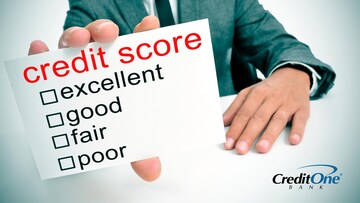
5 Surprising Ways That Your Personal Life Can Impact Your Professional Life
October 16, 2023
You might strive for balance and separation, but personal issues like stress and debt can have a serious impact on your professional life.

People talk about work-life balance and strive to keep their personal and professional lives separate. But it’s pretty hard to do because work is part of life and vice versa. Besides that, your personal finances and well-being can have a significant impact on your work.
Business Lenders Check Your Personal Credit
If you have a small business or side gig, you might assume that you can apply for a business credit card without involving your personal credit score. But you would generally need a well-established major corporation for that to be true. Otherwise, many small business lenders will review your personal credit history and score as part of the application process. So having good credit can open a lot of doors for you, even when you think it’s irrelevant.
Protecting your credit
There are a few habits you can cultivate that will help you protect and build your personal credit score. The most crucial is paying your credit bills on time, every time, before the due date. Paying at least the minimum due is good … but taking care of the full balance is best.
The next most important habit is keeping your credit utilization ratio (CUR) at a reasonable level. That’s the percentage of your credit line that you actually use. Experts generally recommend keeping it below 30% max, so if your credit limit is $1,000, don’t spend more than $300 on that card. Even better is having a ratio percentage in the single digits, so charging up to $90 on that card and then paying it off each month is a great way to boost your score.
Rebuilding your credit
If you’ve already had problems with your credit score, whether from late payments, maxing out your card, or even charge-offs, it’s not too late to rebuild. Improving your credit score takes time, but it’s as simple as making those payments on time (or even early) and keeping your CUR low over the long haul.
Choose a card designed to help rebuild your credit, and even a secured card if you need to. The best strategy is to keep charging a little, and then paying it off, so you can establish that good credit history.
Another option is getting a card that offers generous cash back rewards, and making smart purchases that maximize the benefits of those rewards. For example, if the card gives you elevated rewards on gas and grocery purchases, be sure to use it every time you fill your tank or do the weekly food run.
It’s easy to find out if you’re eligible for a card without impacting your credit score. Simply check to see if you pre-qualify before applying, or respond to a pre-approval letter, both of which do just a soft inquiry. If you find you’re pre-qualified and want to go through with an application, you’ll get a hard pull on your credit report, which will impact your score slightly.
Personal Debt Can Harm Your Credit
Consumer debt in America is at an all-time high, so you’re not alone if you owe money. Debt and credit aren’t necessarily aligned, because the wealthiest people typically carry the most debt … and also have the best credit scores. That’s because they’re making all those payments on time, every time, which you now know is the best way to improve your credit.
So debt isn’t always a bad thing. But carrying a debt and not paying your bills could be. And having a debt too high for your income can prevent you from getting a business loan, even if you have good credit. That might sound strange, but loans are determined based on your debt-to-income (DTI) ratio, which is your monthly expenses divided by your income.
The recommended number here is generally 30-40%, so if you make $5,000 per month, ideally you aren’t paying more than $1,500-$2,000 for housing costs, car payments, and other bills. Your DTI ratio doesn’t directly affect your credit score, but it could impact it indirectly if you’re overextended and can’t cover all your bills on time. And it’s a deciding factor when you apply for more credit.
How to stay out of debt
There are some things you can do to avoid personal debt and keep your finances under control. They’re not always easy, but they’re definitely worthwhile.
- Create a budget: Use your income amount to figure out a budget that you can follow and still have enough left for savings.
- Stick to a plan: Make a pre-set spending plan and stick to it so you’re not tempted to make impulse purchases.
- Set up a fund: Put aside a little money each month and build an emergency fund in a high-yield savings account.
- Get more income: Look at increasing your income through a side gig or part-time job if you don’t make enough money for these tips to be feasible.
Personal Tax Mistakes Can Create a Burden for Your Business
Even though you generally do both personal and business taxes, issues with your personal taxes (like not paying them) can potentially impact your business as well. If those problems get out of control, that could mean IRS tax liens on your commercial properties, and even possibly bankruptcy.
Managing your taxes
If you don’t pay your personal taxes, the IRS can issue a levy against your income and any assets. That means whatever you have or make, the IRS can take. You usually get several letters over the course of a few months, and you need to make a payment arrangement to avoid the levy.
Levies generally target financial resources, whereas a lien can take your property. It’s more complex than a levy, but you can still get out of it by agreeing to pay. There are also some best practices you can follow for preparing personal taxes and avoiding levies and liens from the IRS.
- Gather all your paperwork and eligible receipts.
- File your taxes on time or request an extension.
- Pay any taxes owed right away or promise to pay.
- Answer any IRS collection letters when you receive them.
- Make a payment arrangement for any outstanding balance.
Personal Finances Can Impact Supplier Relations
As you’ve seen, personal financial troubles can influence your business as well. And that even goes as far as relations with your vendors, distributors, wholesalers, and other suppliers. That’s because when you apply for a line of credit from a supplier, they’ll often run your personal credit report.
If you can’t get approved for supplier credit, you’re forced to pay upfront for everything before you even make a return, and if you can’t afford to buy large amounts, you might not qualify for the same bulk discounts. So staying on top of your personal finances is critical if you want to keep your business running smoothly.
Stay in good standing with your suppliers
If you can maintain strong relationships with your suppliers, you might be able to avoid relying on lines of credit.
- Pay on time: This is going to sound familiar, but it’s important to pay all your suppliers on time, every time. You’ll be trusted more, and might even earn discounts for paying quickly.
- Join a group: Sometimes you can get the best pricing by being part of a group purchasing organization (GPO). The increased purchase level from the business collective gives you more negotiating power — although you should always try negotiating prices anyway.
- Address concerns: Check your contract to see if both parties are living up to the agreement, and what’s open to negotiation. Then let your supplier know if you have challenges, and present your ideas for compromise.
- Seek opportunities: You might be able to work with your suppliers on a barter basis, trading your services for their goods. Or you can send them referrals in exchange for a discount or finder’s fee.
If your suppliers don’t want to be flexible, seek out new partners that are more aligned with your vision and mission.
Personal Distractions Can Hinder Your Productivity
All of the previous topics are finance-related, so it’s understandable how those things can impact your business life. But did you know that personal stress can also impact your focus and productivity at work?
A study published by the National Library of Medicine showed an inverse relationship between overall stress and workplace productivity; as stress increased, productivity decreased, along with work satisfaction. And that pattern held regardless of gender or race.
Managing personal stress in the workplace
To manage your personal stress — and therefore increase your productivity — try some of these proven tips. They’re effective whether you work for yourself or someone else.
- Reset mentally: We can’t be in work mode 24/7, although business owners often fall into this trap. If you can’t stop thinking about work when your shift is over, you can’t recover mentally and be ready for the next day. So make a concerted effort to detach psychologically, whether by playing a game, reading a book, or going for a run — and don’t think about business while you’re doing it.
- Take a break: It’s important to step away every few hours, whether to stretch, grab a drink of water, have a snack, or otherwise disengage from your work. Micro-breaks of 10 minutes or so work wonders. You can also meditate or practice mindfulness during this time. Just focus on the present moment, be aware of your breath, and don’t let random thoughts distract you — when they pop in, bring your attention back to right now. If you don’t want to sit still, you can do this while walking as well.
- Choose a hobby: Instead of automatically joining in what your friends or family are doing, consider your own passions and pick a pastime that inspires you. And then engage in this activity during off-work hours. It could be learning an instrument, gardening, painting, or whatever you like. But it has to be something you want to do in order to destress you.
- Prioritize activity: While passively relaxing or watching TV feel like they should be the best for resetting, it turns out that being active — running, playing a sport, going to the gym — is usually better. As long as these activities are different from what you do professionally, they help you recover from depleted mental resources and be more productive when you get back to work.
- Connect with nature: Whether you’re designing your work environment or stepping away from it, being exposed to nature increases your well-being, boosts your energy, and reduces burnout. So having a window view or a few plants on your desk can recharge you, as well as taking a walk through the park during your break. If none of that is possible, even pictures of peaceful nature scenes can be helpful.
So now you can understand how work-life balance often means taking care of yourself so you can do better on the job. It might seem counter-intuitive, but sometimes the best work happens when you take a break from it and return with a new perspective and refreshed energy. And then keeping your personal finances on track can help alleviate one more stressor.



